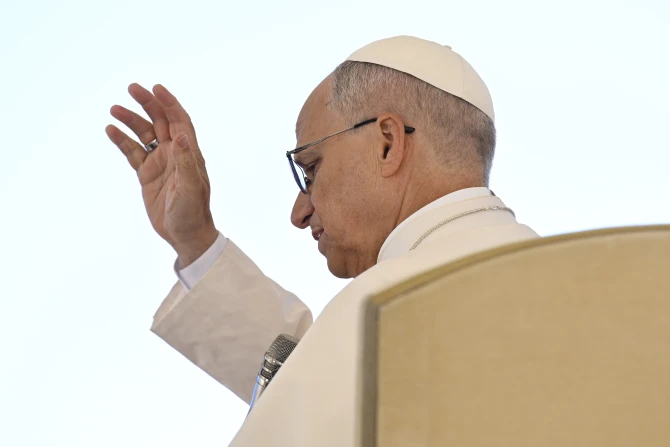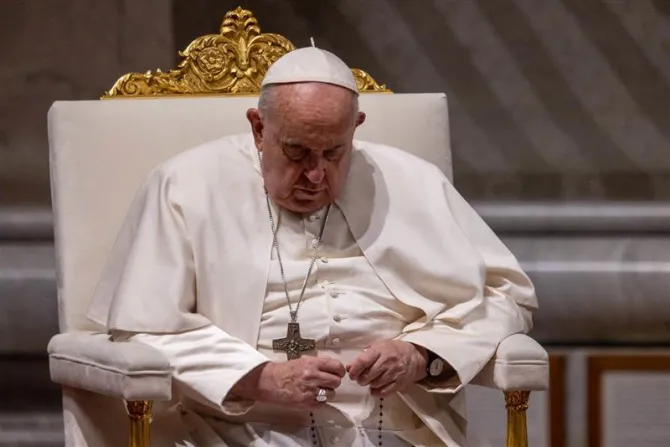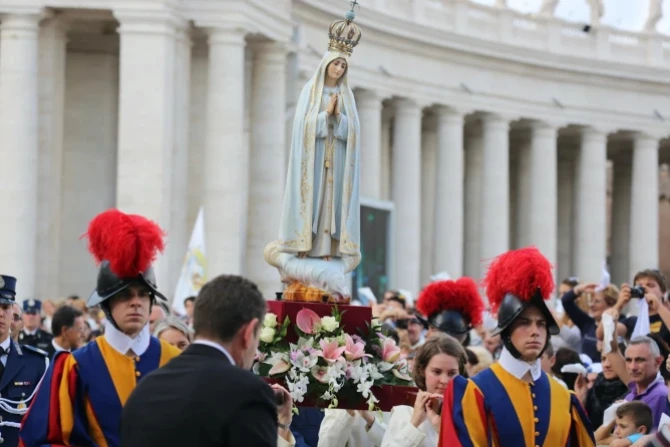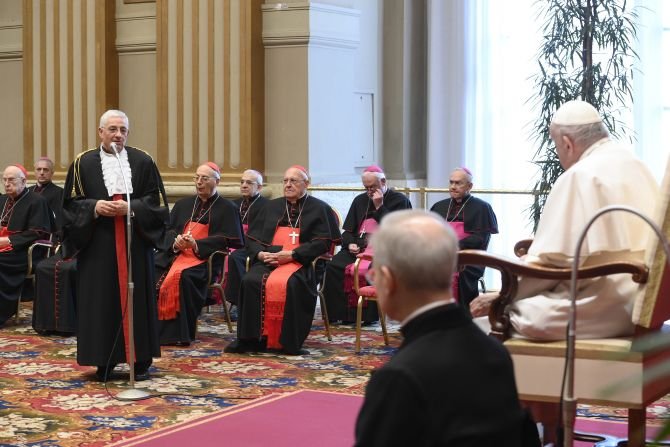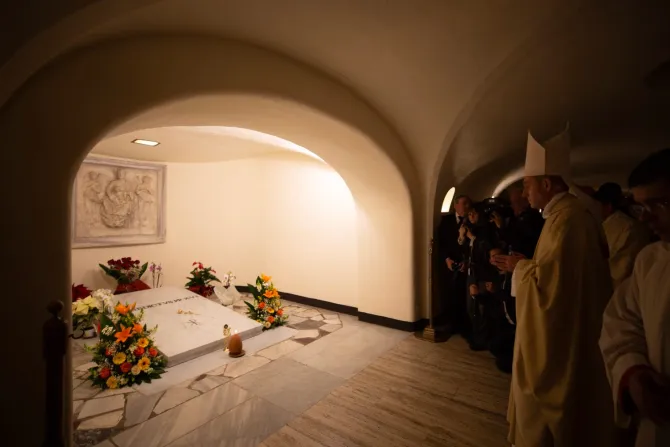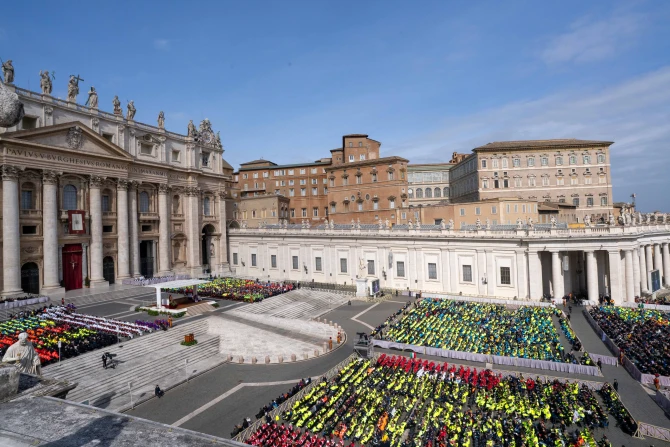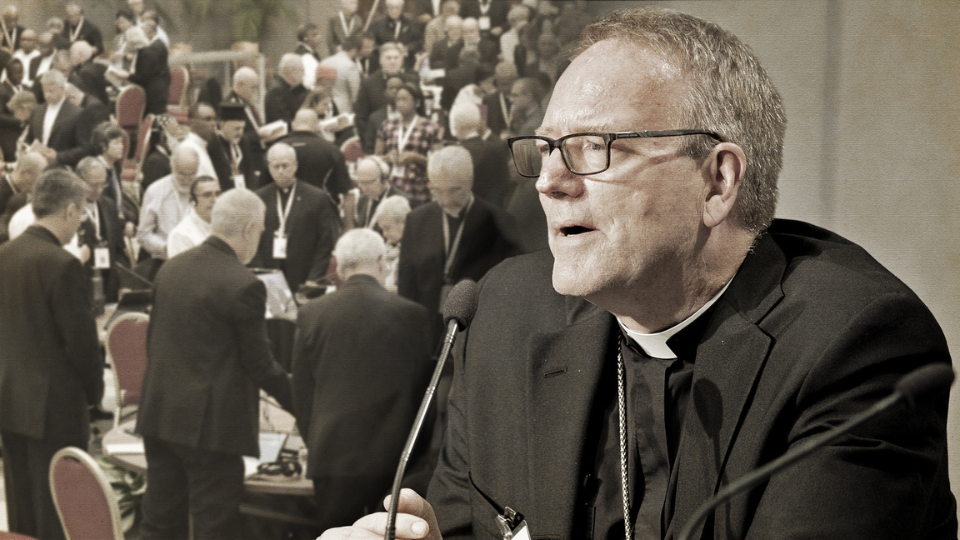In the first major document of his pontificate, Pope Leo XIV writes that the poor are not only objects of charity, but evangelists who can prompt us to conversion through their example of weakness and reliance on God.
“The poor can act as silent teachers for us, making us conscious of our presumption and instilling within us a rightful spirit of humility,” Leo writes in Dilexi Te (“I have loved you”), released by the Vatican on Thursday. “The elderly, for example, by their physical frailty, remind us of our own fragility, even as we attempt to conceal it behind our apparent prosperity and outward appearance. The poor … remind us how uncertain and empty our seemingly safe and secure lives may be.”
The pontiff quotes his predecessor throughout the document, which was first drafted during the previous pontificate and draws heavily on Pope Francis’ first apostolic exhortation, Evangelii Gaudium, on the joy of the Gospel. An apostolic exhortation is one of the most authoritative genres of papal teaching, typically focused on the pastoral application of doctrine.
Christ’s whole life is an example of poverty, Leo writes, and the Church, if it wants to belong to Christ, must give the poor a privileged place.
“For Christians, the poor are not a sociological category, but the very ‘flesh’ of Christ,” he writes. “The Lord took on a flesh that hungers and thirsts, and experiences infirmity and imprisonment.”
Inherited from Pope Francis
Leo signed the exhortation on Oct. 4, the feast of St. Francis of Assisi, who is traditionally known as Il Poverello (“the Little Poor Man”).
The pontiff explains at the beginning of the document that he received it as an inheritance from Pope Francis, who was working on it during the final months of his life.
The document traces the Church’s perennial teaching on the poor, drawing on the Old and New Testaments, the practice of the early Christian community, the writings of Church Fathers and Doctors, the lives of the saints, the documents of the Second Vatican Council, and the magisterium of the popes since St. John XXIII.
Leo also commends the example of contemplative and active religious orders throughout history that have helped the poor with healthcare, food, shelter, and education.
“Every movement of renewal within the Church has always been a preferential concern for the poor. In this sense, her work with the poor differs in its inspiration and method from the work carried out by any other humanitarian organization,” he writes.
Technological progress has not eradicated poverty, which only continues to appear in diverse forms, the pope writes. He defines the poor to include the incarcerated, victims of sexual exploitation, those affected by the degradation of the environment, and immigrants.
“The Church, like a mother, accompanies those who are walking. Where the world sees threats, she sees children; where walls are built, she builds bridges,” he says. “And she knows that in every rejected migrant, it is Christ himself who knocks at the door of the community.”
Lack of material and spiritual care
Leo denounces prejudices that he says can lead Christians to neglect their duty to the poor.
“There are those who say: ‘Our task is to pray and teach sound doctrine’ [and argue] that it is the government’s job to care for [the poor], or that it would be better not to lift them out of their poverty but simply to teach them to work,” he writes.
Sometimes “pseudo-scientific data are invoked to support the claim that a free-market economy will automatically solve the problem of poverty,” or that the rich can enact more effective solutions, the pope writes.
Leo condemns such views as worldly and superficial, and “devoid of any supernatural light.”
Dilexi Te also emphasizes the spiritual needs of the poor, arguing that those are more important than the material, yet often ignored by the Church.
It is not a question of “providing for welfare assistance and working to ensure social justice. Christians should also be aware of another form of inconsistency in the way they treat the poor. In reality, “the worst discrimination which the poor suffer is the lack of spiritual care,’” the pope writes, quoting Pope Francis.
Leo ends his exhortation by emphasizing the duty of almsgiving, which he claims has fallen out of fashion, even among believers.
“Almsgiving, however modest, brings a touch of pietas [“piety”] into a society otherwise marked by the frenetic pursuit of personal gain,” he says, adding that, though it will not be the solution to poverty in the world, it will touch our hearts.
“Our love and our deepest convictions need to be continually cultivated, and we do so through our concrete actions,” he continues. “Remaining in the realm of ideas and theories, while failing to give them expression through frequent and practical acts of charity, will eventually cause even our most cherished hopes and aspirations to weaken and fade away. For this very reason, we Christians must not abandon almsgiving. It can be done in different ways, and surely more effectively, but it must continue to be done. It is always better at least to do something rather than nothing.”
Read the full text of Pope Leo’s Apostolic Exhortation Dilexi te by clicking here.
This article was originally published by CNA.

